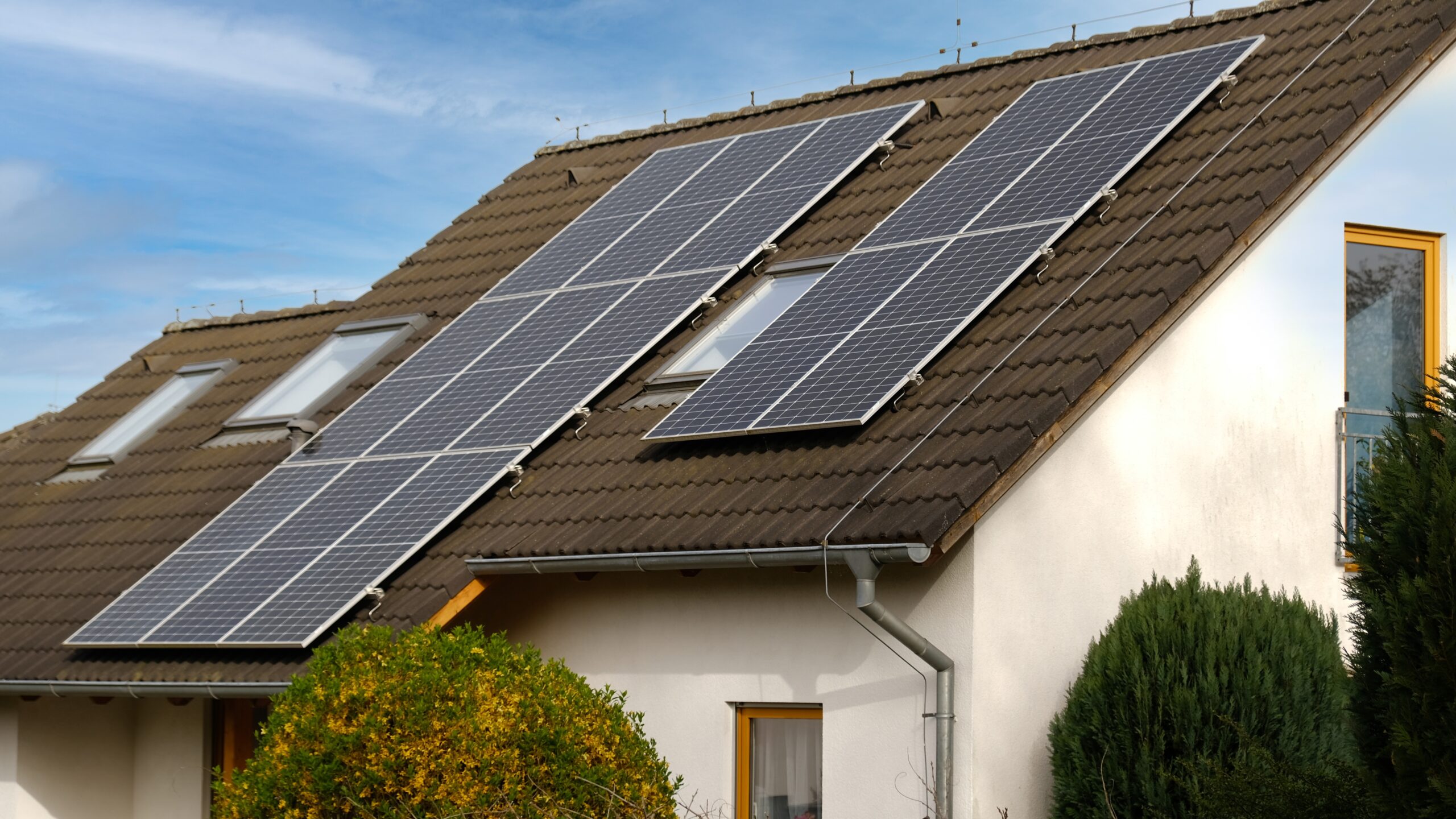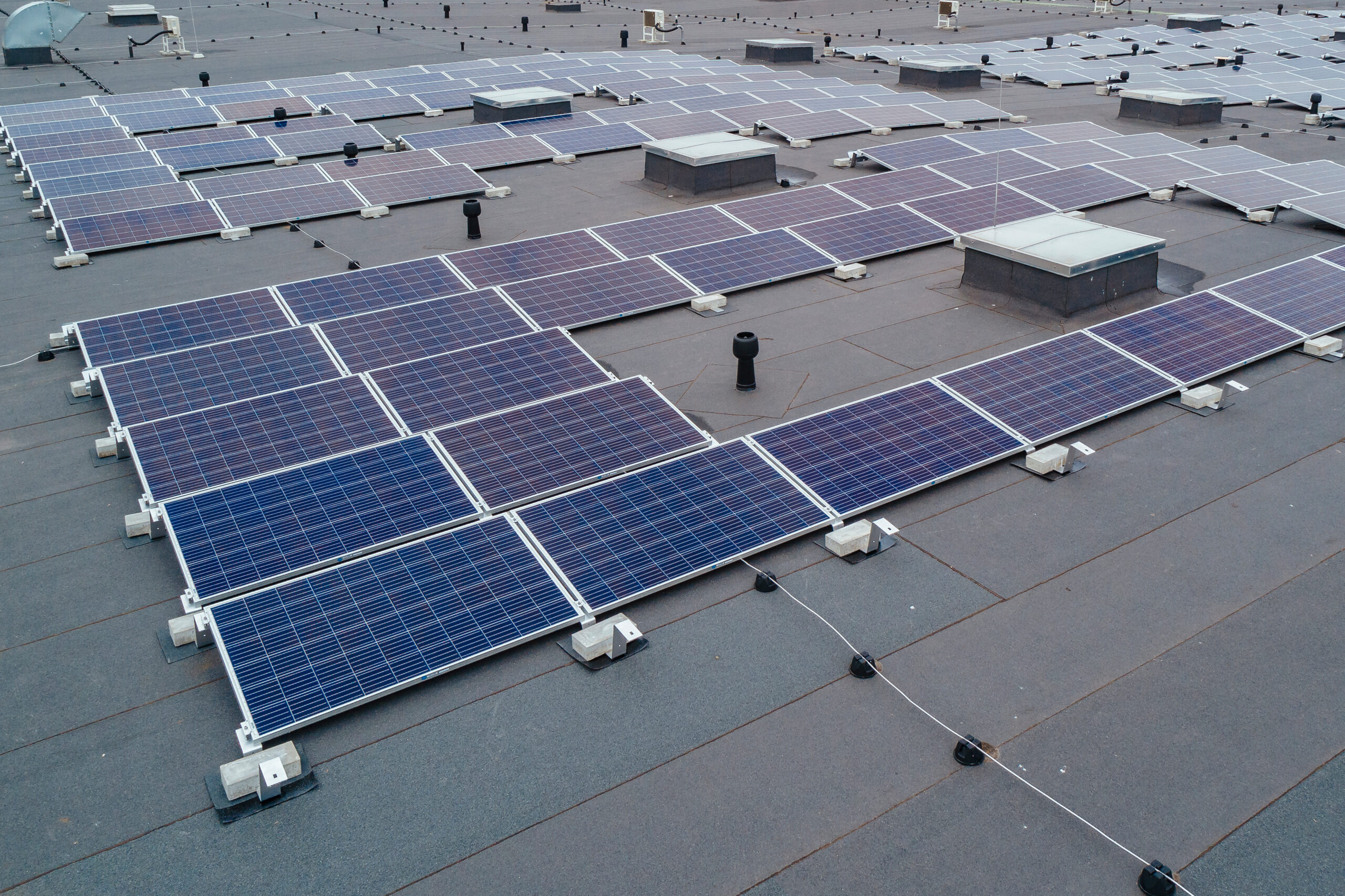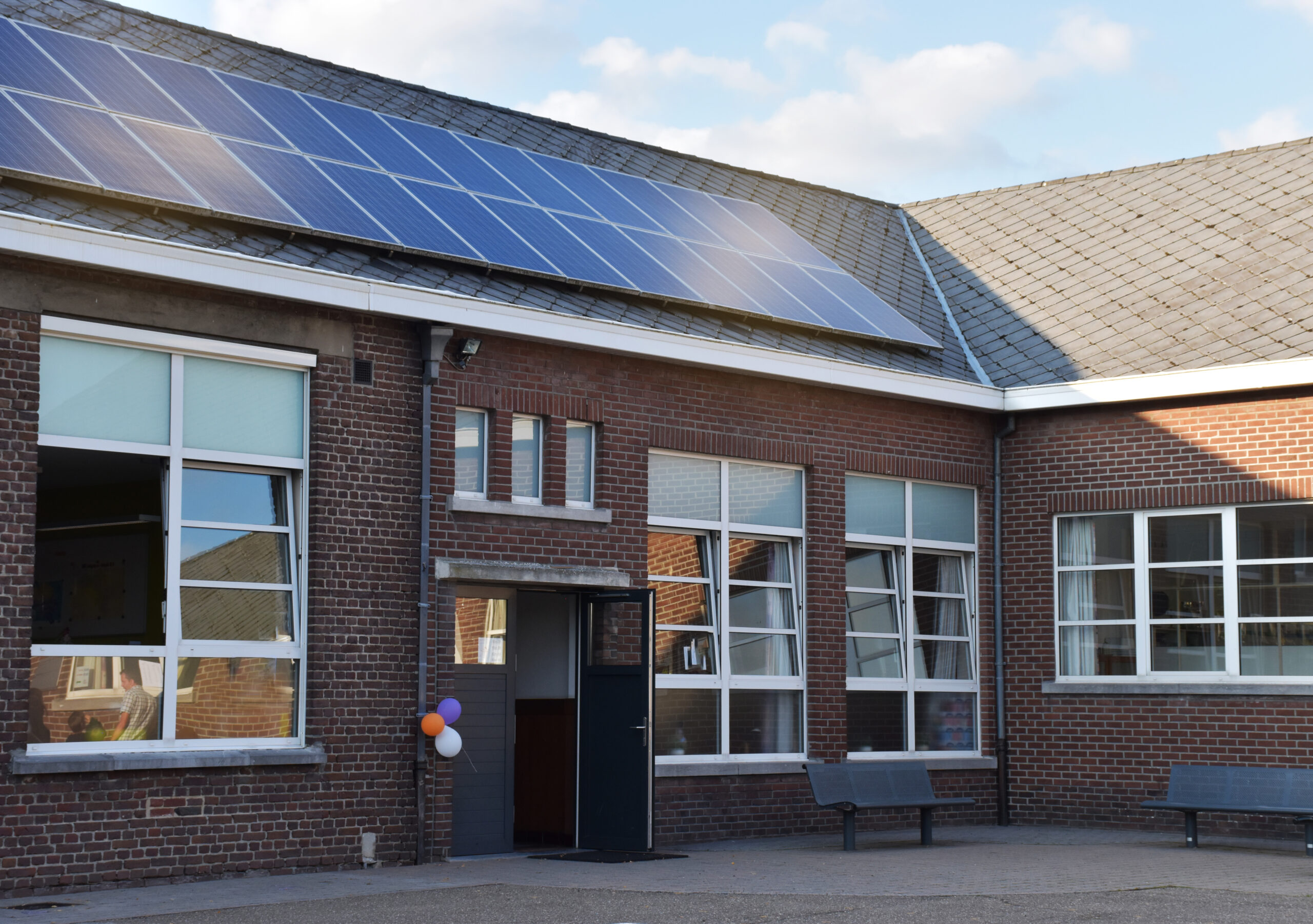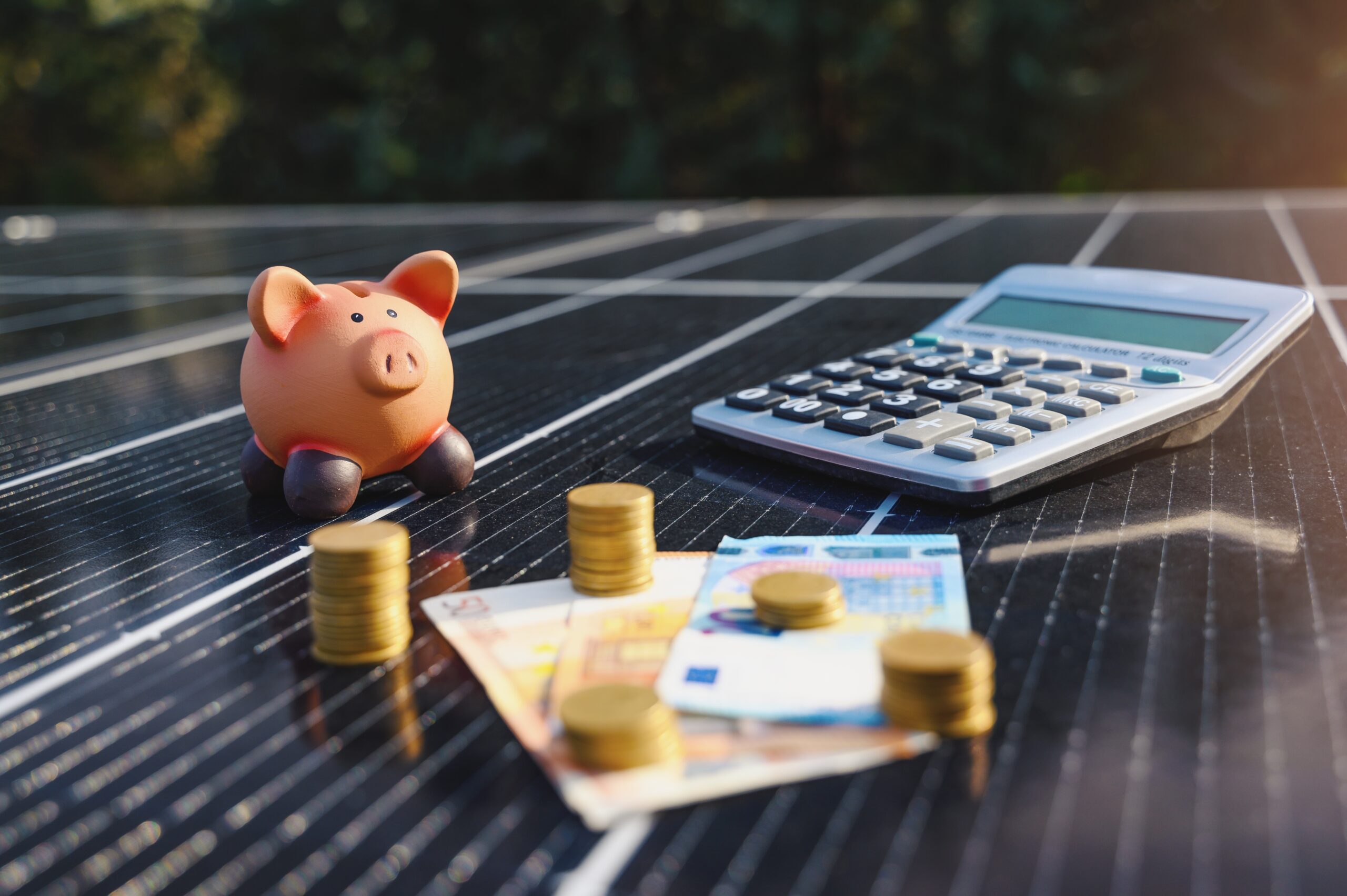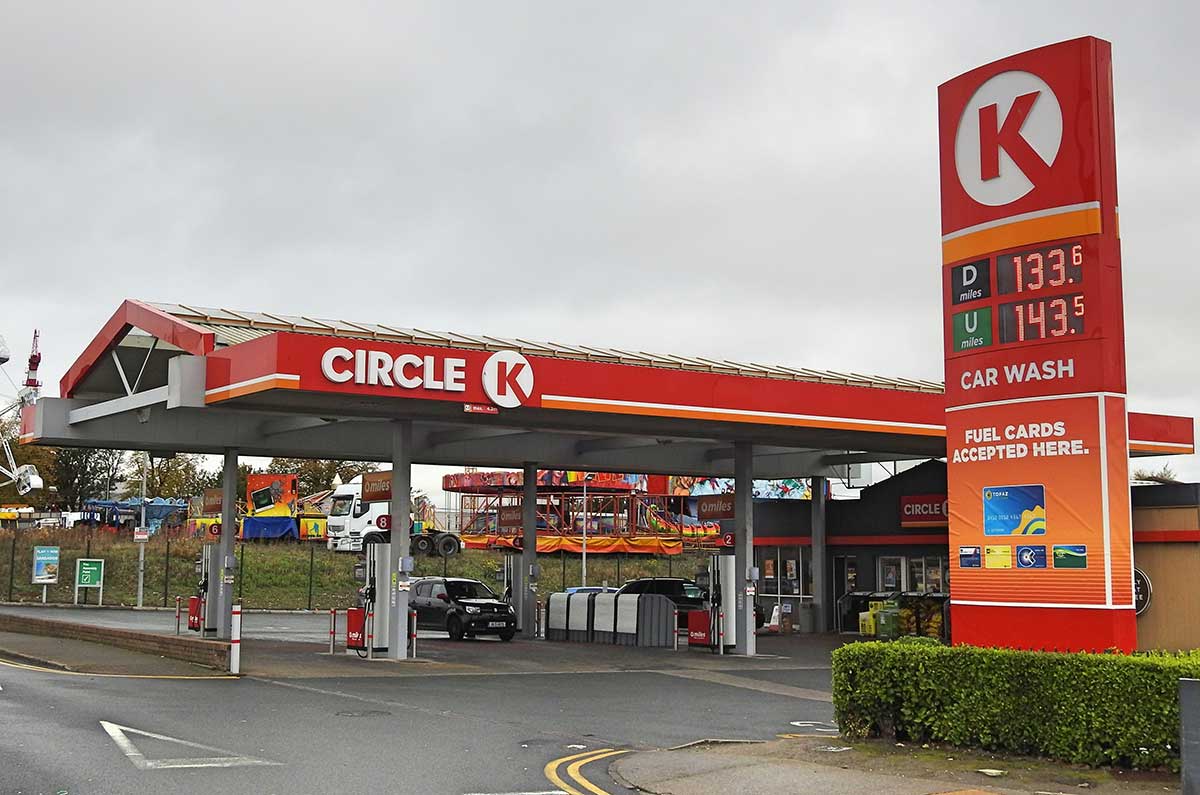
Petrol Stations Required to Show EV Price Comparison
Fuel pump operators are now being required to display a price comparison poster which shows how petrol and diesel cars compare with electric vehicles.
Petrol station operators with three or more fuel pumps must display the comparison poster supplied by the SEAI or face a fine.
The Fuel Price Comparison is meant to be a clear source of information for commuters on the comparative price of fuels for every 100km worth of travel.
The current prices set by the SEAI show electric vehicles as much cheaper than petrol or diesel, accounting for both charging at home and making use of some faster public charging stations.
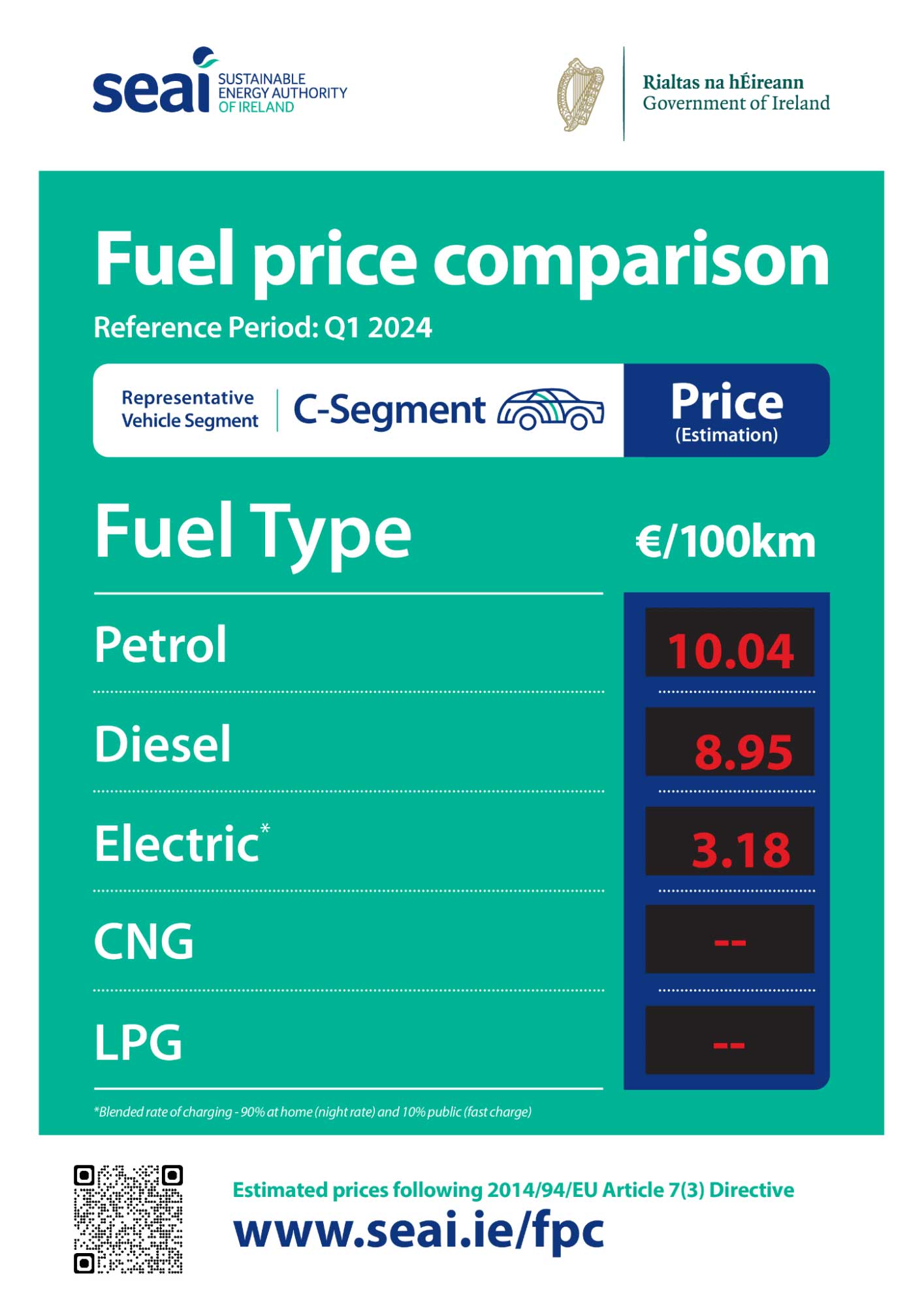
The price estimate for electric vehicles has been based on a blend of 90% home charging using night rates, and 10% public charging, which would use fast and high-powered chargers. Home EV chargers are becoming increasingly popular and are extremely cost effective for EV owners.
James Dorrian, Managing Director of EnergyEfficiency.ie said that a lot of people are still uncertain or unaware of the benefits of electric vehicles, and that this initiative could help drive the message home.
“People know that electric cars are cheaper to run than petrol or diesel cars, but it’s often not made clear to the public just how large the divide is. As long as you are smart about when and how you charge, running an EV can cost less than half the price of its fossil fuel counterparts.”
“A lack of clear information, along with a slower than ideal roll out of infrastructure, has been one of the biggest stumbling blocks in the way of adopting electric cars in Ireland.”
One of the selling points of electric vehicles is that the bulk of your charging can be done at home overnight, with a small 7 – 22kW home charge point drawing power from the domestic grid.
This works out cheaply, as electric car owners can avail of cheaper rates during off-peak hours if charging overnight.
How long it takes to charge will depend on the battery size of the electric vehicle, but the majority can achieve a full charge in 7 – 8 hours.
High-speed EV charging stations operating at 50 – 150kW of direct current can charge your car much faster, reaching up to 80% charge in just a few minutes with higher-powered models. However, these public charging stations are more expensive to use.
All fuel stations with three or more pumps have been required to display this poster and update it with the latest version when it becomes available each quarter
The display can either be an A3 poster affixed on or near the pumps themselves, an A2 poster at the entrance to the shop or inside, or an electric monitor with a screen size of at least 19 inches.
Failure to comply with this requirement could see petrol stations hit with a €500 fine, with inspectors carrying out spot checks on obligated fuel stations.
The current data for fuel prices is based on the first three months of 2024, and will be updated
The SEAI is relying on CSO data that more than 90% of car journeys nationwide are for less than 45 minutes. Based on this they have calculated that 90% of EV charging will be done at home at night.
The government is also trying to increase the pool of public EV charging stations available at petrol stations and other locations close to the motorway network this year and next.
A €21 million grant scheme aims to install pools of high speed chargers at intervals of every 60km along Ireland’s motorway network.
These pools of chargers would be placed at filling stations, hotels, shops, and other prominent locations within 3km of the motorway.
Each pool is meant to have a combined power output of 1,200kW, with at least four 150kW charging points at each location.
“Having this fast charging infrastructure along the country’s busiest routes would make a huge difference to the viability of electric cars as a substitute for petrol of diesel,” James Dorrian said.
“Knowing that there will be somewhere to charge takes the uncertainty out of making long journeys in an electric vehicle.”
Author:

Briain Kelly
EDITOR
Briain Kelly is a Leinster based journalist and content creator who has been writing about energy efficiency and renewable energy technologies for nearly three years. He researches the latest news in multiple areas related to solar power, electric vehicles, heat pumps, and home energy upgrades. His writing includes both technological developments and government policy.
Author:

Briain Kelly
Renewable Energy Researcher
Briain Kelly is a Leinster based journalist and content creator who has been writing about energy efficiency and renewable energy technologies for nearly three years. He researches the latest news in multiple areas related to solar power, electric vehicles, heat pumps, and home energy upgrades. His writing includes both technological developments and government policy.
Popular Content 🔥
Petrol Stations Required to Show EV Price Comparison
Written by
Last edited
18/07/2025
Fuel pump operators are now being required to display a price comparison poster which shows how petrol and diesel cars compare with electric vehicles.
Petrol station operators with three or more fuel pumps must display the comparison poster supplied by the SEAI or face a fine.
The Fuel Price Comparison is meant to be a clear source of information for commuters on the comparative price of fuels for every 100km worth of travel.
The current prices set by the SEAI show electric vehicles as much cheaper than petrol or diesel, accounting for both charging at home and making use of some faster public charging stations.

The price estimate for electric vehicles has been based on a blend of 90% home charging using night rates, and 10% public charging, which would use fast and high-powered chargers. Home EV chargers are becoming increasingly popular and are extremely cost effective for EV owners.
James Dorrian, Managing Director of EnergyEfficiency.ie said that a lot of people are still uncertain or unaware of the benefits of electric vehicles, and that this initiative could help drive the message home.
“People know that electric cars are cheaper to run than petrol or diesel cars, but it’s often not made clear to the public just how large the divide is. As long as you are smart about when and how you charge, running an EV can cost less than half the price of its fossil fuel counterparts.”
“A lack of clear information, along with a slower than ideal roll out of infrastructure, has been one of the biggest stumbling blocks in the way of adopting electric cars in Ireland.”
One of the selling points of electric vehicles is that the bulk of your charging can be done at home overnight, with a small 7 – 22kW home charge point drawing power from the domestic grid.
This works out cheaply, as electric car owners can avail of cheaper rates during off-peak hours if charging overnight.
How long it takes to charge will depend on the battery size of the electric vehicle, but the majority can achieve a full charge in 7 – 8 hours.
High-speed EV charging stations operating at 50 – 150kW of direct current can charge your car much faster, reaching up to 80% charge in just a few minutes with higher-powered models. However, these public charging stations are more expensive to use.
All fuel stations with three or more pumps have been required to display this poster and update it with the latest version when it becomes available each quarter
The display can either be an A3 poster affixed on or near the pumps themselves, an A2 poster at the entrance to the shop or inside, or an electric monitor with a screen size of at least 19 inches.
Failure to comply with this requirement could see petrol stations hit with a €500 fine, with inspectors carrying out spot checks on obligated fuel stations.
The current data for fuel prices is based on the first three months of 2024, and will be updated
The SEAI is relying on CSO data that more than 90% of car journeys nationwide are for less than 45 minutes. Based on this they have calculated that 90% of EV charging will be done at home at night.
The government is also trying to increase the pool of public EV charging stations available at petrol stations and other locations close to the motorway network this year and next.
A €21 million grant scheme aims to install pools of high speed chargers at intervals of every 60km along Ireland’s motorway network.
These pools of chargers would be placed at filling stations, hotels, shops, and other prominent locations within 3km of the motorway.
Each pool is meant to have a combined power output of 1,200kW, with at least four 150kW charging points at each location.
“Having this fast charging infrastructure along the country’s busiest routes would make a huge difference to the viability of electric cars as a substitute for petrol of diesel,” James Dorrian said.
“Knowing that there will be somewhere to charge takes the uncertainty out of making long journeys in an electric vehicle.”
Author:

Briain Kelly
EDITOR
Briain Kelly is a Leinster based journalist and content creator who has been writing about energy efficiency and renewable energy technologies for nearly three years. He researches the latest news in multiple areas related to solar power, electric vehicles, heat pumps, and home energy upgrades. His writing includes both technological developments and government policy.
Author:

Briain Kelly
Renewable Energy Researcher
Briain Kelly is a Leinster based journalist and content creator who has been writing about energy efficiency and renewable energy technologies for nearly three years. He researches the latest news in multiple areas related to solar power, electric vehicles, heat pumps, and home energy upgrades. His writing includes both technological developments and government policy.

